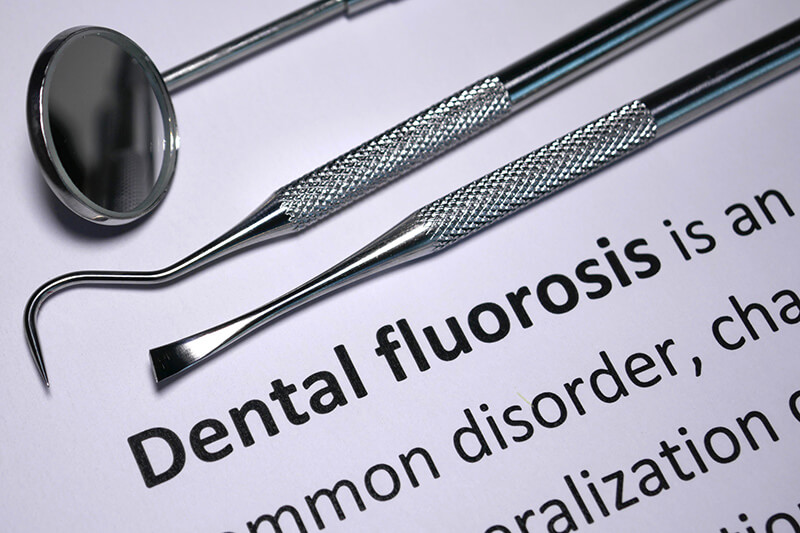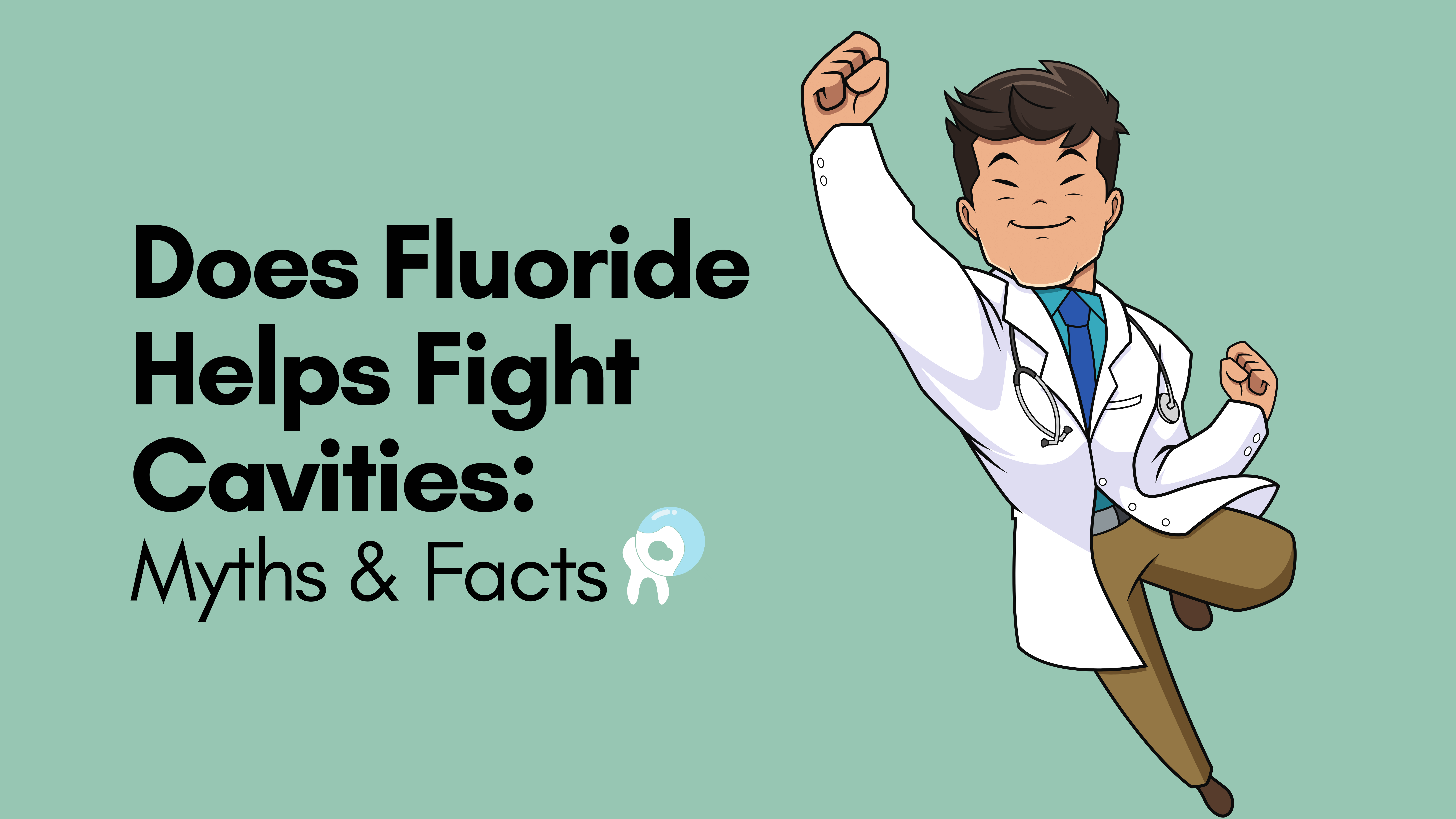It is time to separate the facts from fiction about fluoride and find out if it really is tough on cavities.
There has been much debate about adding fluoride to community water supplies. Over the years, studies have found that fluoride can be beneficial for oral health. But how much fluoride is too much? And is it safe for children who are still waiting on their permanent teeth?
What Is Fluoride?

Fluoride is a mineral that usually forms in rocks withstanding hydrothermal activity. It is likewise found in air, soil, and water. Although all naturally occurring water consists of small amounts of fluoride, it is not a significant amount. It is not sufficient to help reduce tooth decay and cavities.
The benefits of fluoride for dental health were not discovered until around 1940. Although, decades earlier a dentist investigating high incidences of dental decay in Colorado made note of isolated fluoride in water. He and other dentists eventually concluded that fluoride provides protection against cavities. But he also noted that it can affect permanent teeth in incredibly young children.
What is Dental Fluorosis?
Dental fluorosis can damage permanent teeth if a child consumes fluoridated water regularly. The issue occurs after having too much fluoride before permanent teeth have emerged.
Most cases of dental fluorosis are mild consisting of tiny white spots on dental enamel. Children over the age of eight or nine, teenagers, and adults are not at risk for dental fluorosis.
Although, since the 1960s dentists have reported a slow but steady increase in dental fluorosis. Notably, the increase has been in adolescents and adults who drink water containing 10 to 15 percent more fluoride than recommended by the CDC.
The U.S. Centers for Disease Control urges parents to give their children non-tap water to consume if drinking water contains more than two milligrams of fluoride per liter.
Parents should also be aware that well water always contains extra fluoride. It should not be given to babies, toddlers, or children to drink.
Young children that drink well water daily are at a higher risk of developing moderate to severe fluorosis compared to children drinking tap water.

Does Fluoride Really Protect Against Cavities?
The American Dental Association says yes, fluoride can reduce the risk of cavities if you practice good oral hygiene. Cavities form on dental enamel when certain strains of oral bacteria are left on teeth. These bacteria feed on food particles and continue to grow when not removed by brushing and flossing.
When oral bacteria consume simple sugars, they excrete a substance called acid plaque. While periodontal plaque causes gingivitis, acid plaque causes cavities by softening dental enamel. Over time, acid plaque weakens teeth. Damaged areas of the tooth then react by caving in and leaving a hole (cavity).
Unless the hole is filled by a dentist, the cavity continues to enlarge. For many, this continues until it reaches the tooth’s inner pulp and causes pain.
When you drink fluoridated water or use fluoridated toothpaste, saliva helps fluoride seep into dental enamel. Although dental enamel is one of the strongest substances your body produces, it is still porous enough to absorb the fluoride.
Once inside the enamel, fluoride interacts with two other minerals, phosphate and calcium, to create fluoroapatite. This substance stops the demineralization of enamel by providing strengthen. If a newly formed weak spot has developed on a tooth, fluorapatite can help reverse its formation.

Myths About Fluoride
Swallowing Fluoride Causes Cancer
This myth arose from a decades-old research study about the effect of fluoride on rats. After giving rats abnormally large doses of fluoride, an exceedingly small percentage developed bone cancer. However, there is no peer-reviewed, scientific study involving humans that indicates fluoride causes cancer.
Fluoride Causes Thyroid Disorders
This is another debunked myth propagated by a report comparing fluoride levels in different water systems. The researchers erroneously concluded that high fluoride levels “predicted a prevalence of thyroid disease”.
However, the researchers failed to take other important environmental variables into account. Variables that could contribute to higher-than-average hypothyroidism in a community. These variables include iodine intake, vitamin D deficiency, and exposure to radiation.
Consequently, the study was negated by numerous other studies. Thus, proving no link exists between fluoride and thyroid disorders.
Fluoride Poses a Health Risk to Children
No quantifiable facts exist to support this claim. Aside from mild cases of dental fluorosis, fluoride does not cause harm to children.
Although, the CDC recommends parents use distilled or purified water to make infant formula. Powdered formula does contain small amounts of fluoride in it.
Most New Jersey towns do not add fluoride to their water. One of the only towns in Sussex County that does is Newton. This means, in our area, it is especially important to use fluoridated toothpaste and regularly visit the dentist.

It is Fine to Brush Baby Teeth with Fluoridated Toothpaste
The American Dental Association strongly advises against using fluoridated toothpaste on children under two or three years of age. A child being able to spit with ease is an indication to begin using fluoride. If you are not sure about when to begin using fluoride for cavity protection, call us at Hamburg Dental.
Hamburg Dental offers pediatric and adult dental services. Contact us today for more information about our comprehensive dental treatments.




